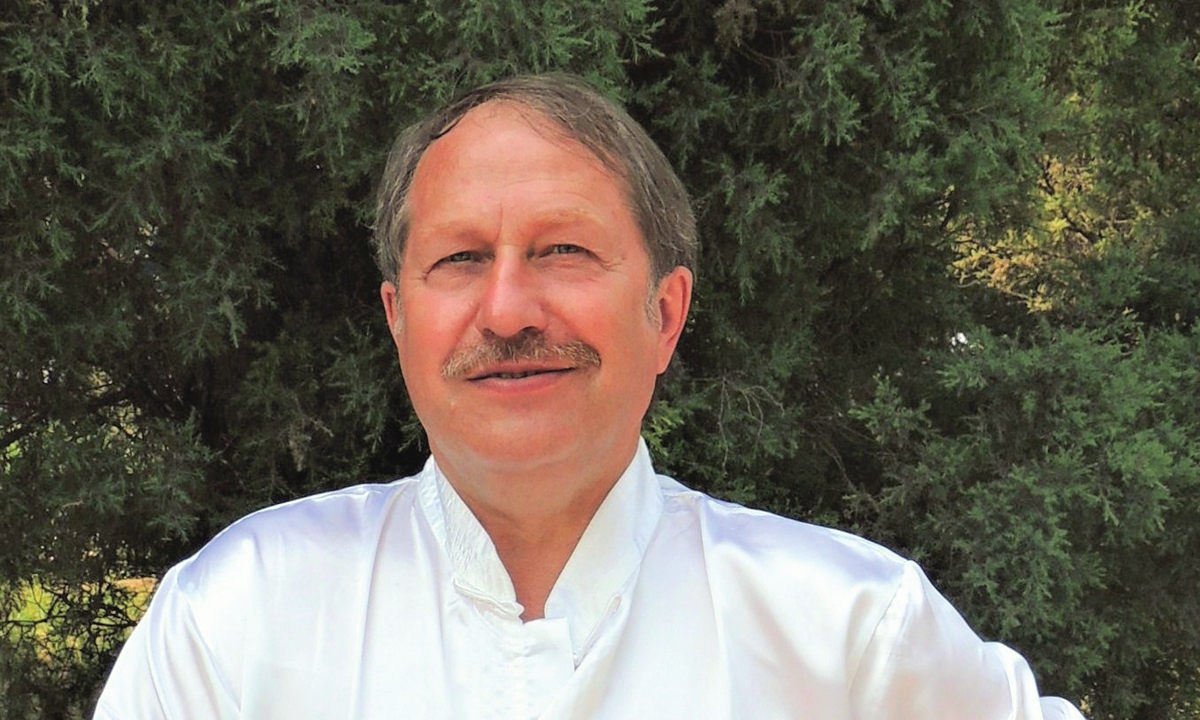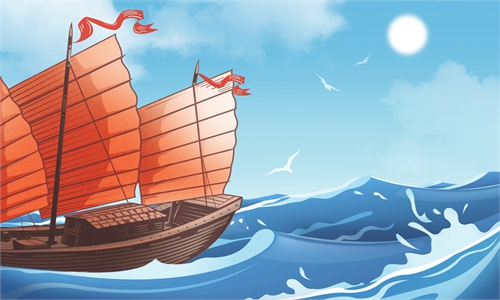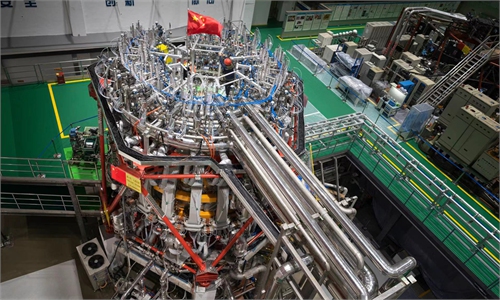Revival of Chinese nation inevitable, as country and people strengthen each other: Russian scholar

Yury Tavrovsky Photo: Courtesy of Tavrovsky
Editor's Note:
For the Chinese people, the past decade has been epic and inspirational. The country, under the leadership of the CPC Central Committee with Comrade Xi Jinping at the core, has made great endeavors in boosting its economy, deepening reforms, improving the rights of its people and acting as a responsible power globally.
In an interview with Global Times (GT) reporter Wang Wenwen, Yury Tavrovsky (Tavrovsky), head of "Russian Dream-Chinese Dream" analytic center of the Izborsk Club, shared his understanding of the thinking and practice of China's governance and underlined how China has developed in the past decade amid the changing international political and economic situation.
This is the 15th article of the series about this special decade.
GT: You were born in 1949, the year the People's Republic of China was founded. Can you briefly talk about your bond with China?
Tavrovsky: I became a sinologist at the same time by chance and not by chance. Several generations of my family were connected with China. Having decided to enter Faculty of Oriental Studies of Leningrad State University in 1966, I chose Chinese, although it was lower in popularity to Japanese and Hindi in those years. I was influenced by the years of living with my parents in Kamchatka, where there were a lot of Chinese goods in the 1950s and 1960s. We ate Chinese apples and canned pineapple, drank Tonghua grape wine, furnished apartments with Chinese furniture, used Chinese towels and thermos flasks. My mother went on a tourist trip to China in 1959 and brought home not only enthusiastic stories, but also many souvenirs that still adorn my office.
Studying at the Faculty of Oriental Studies was fascinating. The acquired knowledge of language, classical literature, history and philosophy was very useful after graduation.
GT: Your book Xi Jinping: The Chinese Dream has allowed many Russians to better understand China's progress over the past decade and how China's leader has acted out of care for the people and country. Can you talk about the writing process and thinking?
Tavrovsky: I started writing it in 2014 and it was published in 2015. From the analysis of even the first articles and speeches, it became clear to me that a person with a long-term vision and an iron will to implement the goals set step by step came to the leadership of China. The second book, published in 2018, was called Xi Jinping: A New Era. It described and analyzed the events, including the 19th CPC National Congress. Even then it was clear already that the Chinese Dream was being fulfilled exactly on schedule, that the "a moderately prosperous society in all respects" would be built by 2021, absolute poverty would disappear, China's total economic volume or per capita income would double by 2035. Another book on the implementation of the long-term program Chinese Dream is due to be published this year. I called it The Roots and Fruits of the Chinese Miracle. It focuses on the magnificent qualities of the Chinese people that made it possible to overcome the "trade war" unleashed by the US and take control of the COVID-19 pandemic.
The Chinese people, having shown sacrifice and discipline, believed in the correctness of their leadership strategy, based on the successes already achieved by that time in fulfilling the Chinese Dream. The country and the people have strengthened each other, which is making the revival of the Chinese nation inevitable.
I wrote on the Izborsk Club website not long ago that China's leader has shown a rare talent in planning long-term development and implementing them. When the "Cold War" escalated and the pandemic broke out, China showed its ability to cope with the impact. If someone tries to blame all 'black swan' events on China, it will be completely wrong.

The first China-Russia highway bridge linking Heihe, a border city in Northeast China's Heilongjiang Province, to the Russian city of Blagoveshchensk spanning the Heilongjiang River opened to traffic on June 10. Photo: IC
GT: Looking back on 2012, the 18th National Congress of the Communist Party of China was convened in a complex world economic and political situation. In the past 10 years, what major changes do you think have taken place in the world economic and political situation? How do you evaluate China's development in these situations?Tavrovsky: Over the past 10 years, it has become clear that the world order based on American hegemony has lost its effectiveness. Liberal capitalism has ceased to be a "world idea" or Zeitgeist, and it has to compete with other world ideas, including, first of all, socialism with Chinese characteristics. The center of the global economy has shifted from the West to the East, to the Asia-Pacific region. China has been viewed by the US as a major strategic competitor, with rapidly rising economic, financial and military power.
The understanding of the incompatibility of American hegemony with a strengthening China came under Obama. Trump tried to fight China "on his own strength or self-reliance" and broke down. Biden is trying to unite the resources of the whole world to fight Beijing under the "star-spangled banner." It won't work. Many countries including Russia are not willing to side with Washington. Under these conditions, China has taken the correct position - it continues to move forward toward the realization of the Chinese dream. The dogs bark, but the caravan goes on.
GT: What do you think of the development of China-Russia relations in the past decade? After entering the 2020s, what factors will affect the development of relations between Russia and China? What role does the US play in this?
Tavrovsky: Our relations have developed along an upward trajectory. The coincidence and even synergy of our bilateral relations is based on the coincidence of national security interests and the complementability of our economies. A powerful incentive for accelerated rapprochement in recent years has been the "Cold War," which the US is simultaneously waging against Russia and China.
GT: why can't some politicians and media in Western countries feel at ease to compare and study why the Chinese political system is different from theirs?
Tavrovsky: Western civilization for many centuries simply did not suspect the existence of Chinese civilization. Even after learning about it, the West continued to consider itself the only possible form of human existence. China in the middle of the 19th century could hardly convince the West. The current successes of China cause many people in the West to react with rejection, envy and other bad feelings. This is a continuation of the "Yellow Peril" and other racist prejudices. Studying Chinese political culture, its origins and development requires many years of study and reflection. Current politicians have no time or desire for this. There are still many conflicts ahead due to misunderstandings.



